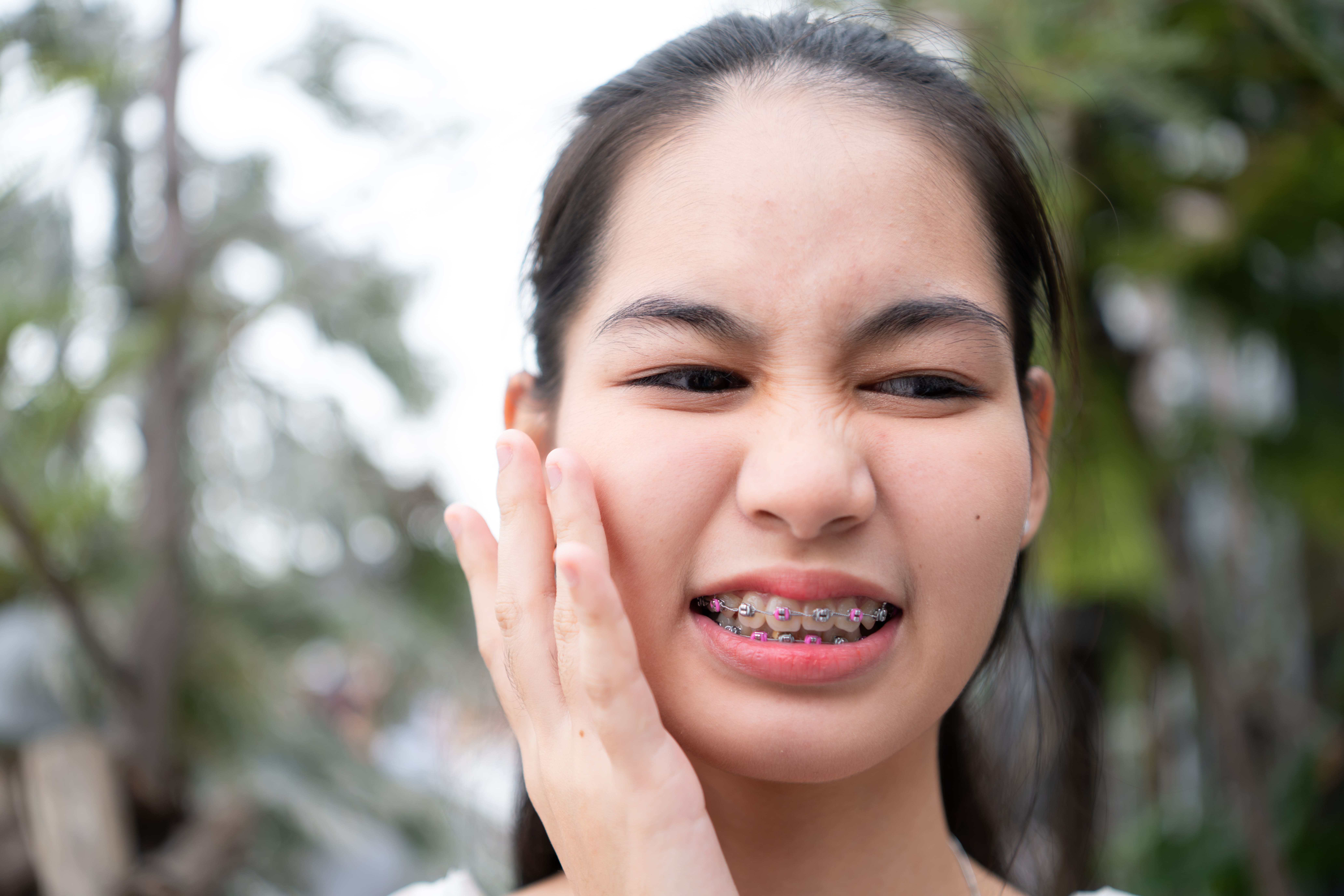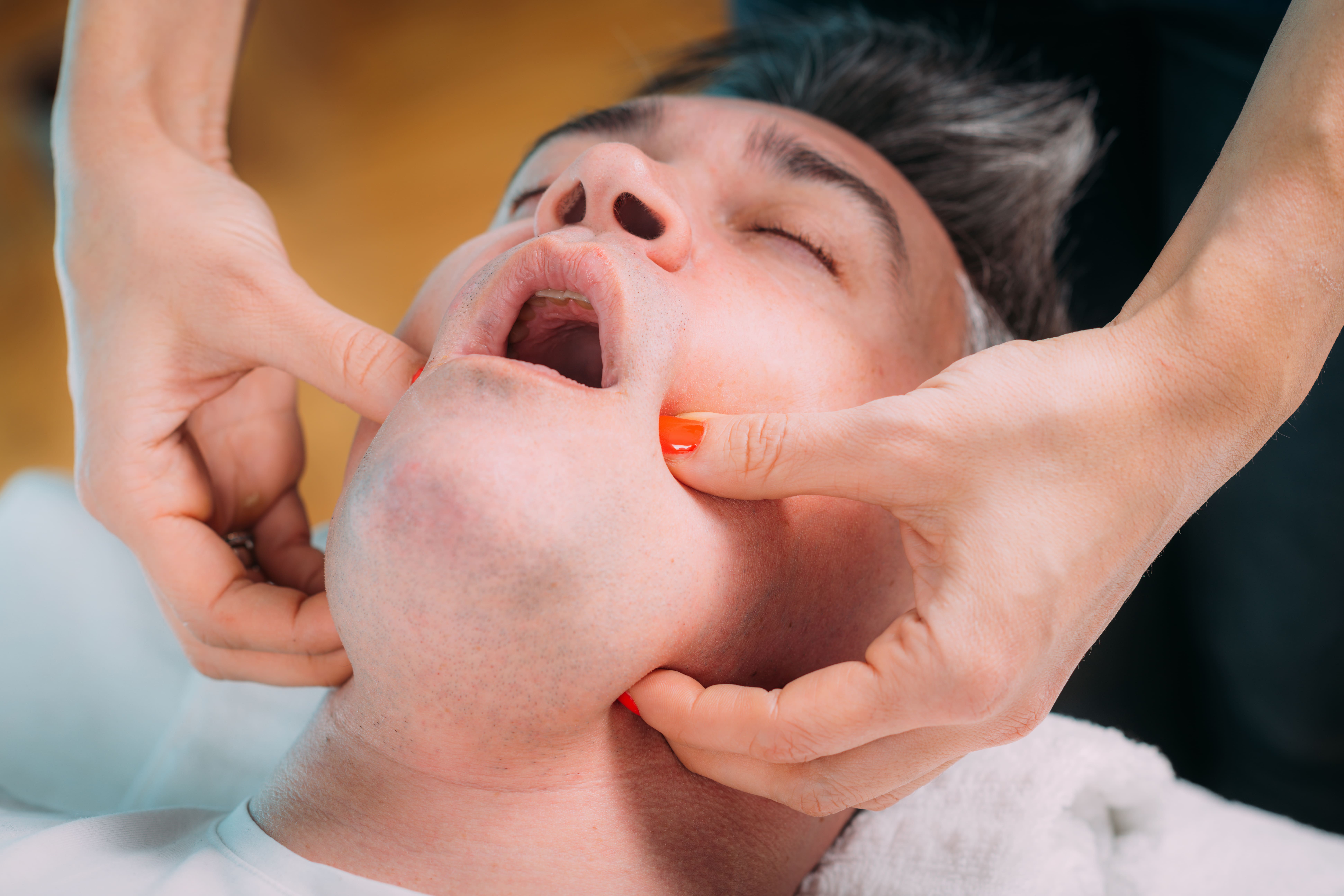Posted on April 30, 2025

Getting braces is a big step for any teen. It marks the beginning of a journey to a healthier, more confident smile. While braces are designed to improve your teeth and bite over time, it’s normal for the first few days or weeks to feel a little uncomfortable.
Soreness, tightness, and pressure—these are all part of the adjustment process. And if you’re a parent, seeing your teen deal with that discomfort can be tough.
But don’t worry—it doesn’t last forever. Most teens adapt quickly, especially with the right guidance and support. Knowing what to expect and how to handle those early aches can make a big difference.
Smilebliss will walk you through simple, effective ways to manage braces pain so your teen can focus on what really matters—living life, smiling more, and getting used to their new routine. If you’re in Marietta, GA and looking for expert care, our team here at Smilebliss is here to help every step of the way.
Your teen will probably feel some soreness after getting braces. That’s normal. Knowing why it happens can help make it less stressful.
 That first week with braces can be a little rough. Your mouth needs time to get used to the brackets and wires. It might feel sore, especially when your teeth start shifting into their new spots. You might notice sensitivity or aches that come and go.
That first week with braces can be a little rough. Your mouth needs time to get used to the brackets and wires. It might feel sore, especially when your teeth start shifting into their new spots. You might notice sensitivity or aches that come and go.
Braces need regular adjustments to keep teeth moving the right way. But yeah—tightening those wires can hurt a bit. Most teens feel soreness for a day or two afterward. Booking appointments during a slower week helps give them time to recover.
It’s pretty common for brackets or wires to rub against the inside of your cheeks or lips. That’s where orthodontic wax comes in handy. Just place a small bit over any rough spot, and it creates a smooth surface.
If a bracket feels loose or something doesn’t sit right, let your orthodontist know. And remind your teen to brush gently around those areas—no need to scrub and make things worse.
Feeling sore after getting braces or following an adjustment? Totally normal. Most teens go through it—especially during the first few days. While the discomfort doesn’t last long, there are easy ways to make it more manageable.
A few easy at-home tricks can make a big difference and help you feel better faster.
Got a bracket or wire rubbing the inside of your mouth? Orthodontic wax is a quick fix. Just roll a small piece into a ball, flatten it slightly, and stick it over the spot causing trouble. It acts like a cushion between the braces and your mouth.
Tip: Keep some wax in your bag for school or outings—just in case. Change it daily to stay clean.
If soreness gets uncomfortable, an over-the-counter pain reliever like Tylenol or Advil can help. Always check with a parent first and follow the correct dosage. Taking medicine right before or after an appointment can make a big difference.
After adjustments, chewing might feel tough. Soft foods are your best friend.
Try foods that don’t need a lot of chewing, like:
 Yogurt
YogurtNeed variety? Mix up flavors. Try a fruity smoothie one day and a creamy soup the next. Add protein, too—think peanut butter or eggs—to help keep your energy up.
Avoid crunchy snacks or sticky treats that can tug at the wires.
When your mouth is sore, biting into crunchy stuff like chips or apples isn’t fun. Stick to soft, braces-friendly foods that are easy to chew.
A cold compress helps reduce swelling and numb sore areas. Wrap ice or a cold gel pack in a soft towel and hold it to the outside of your cheek for about 10 to 15 minutes. You can repeat this a few times throughout the day.
One of the easiest ways to calm sore gums is with a warm salt water rinse. It’s quick, cheap, and surprisingly effective.
Here’s how to do it:
This rinse helps reduce swelling and gently cleans the sore spots inside your mouth.
 Gently massaging sore areas with a clean finger helps boost blood flow and ease tension. Light pressure on your gums or cheeks a few times a day can calm things down.
Gently massaging sore areas with a clean finger helps boost blood flow and ease tension. Light pressure on your gums or cheeks a few times a day can calm things down.
If something really hurts, a numbing gel like Orajel or Anbesol can temporarily dull the pain. Just dab a little on the sore spot with a clean finger or cotton swab. Ask your orthodontist or parent to show you how to apply it safely.
If you play sports, consider wearing a mouthguard to protect your braces—and your smile. It will help prevent injury and avoid making soreness worse during physical activity.
Cleaning around brackets and wires helps prevent issues that cause even more discomfort. Use soft-bristled brushes, floss threaders, or water flossers to clean every corner of your mouth. Stay consistent with your hygiene routine to avoid irritation.
If pain sticks around longer than expected, or something just feels off, speak up. Let your orthodontist know what’s going on. Keep a few notes on when the pain started, what it feels like, and if anything makes it better or worse. That way, your orthodontist can give you the right advice or make adjustments if needed.
Braces can be tough at times, especially in the beginning—but the good news is that pain can be managed with the right care and support.
Teens in Marietta have an advantage: supportive families, access to helpful tools, and a caring orthodontic team to guide them through every step. With time and small adjustments, they’ll get used to the changes and start feeling more confident.
If the pain feels like too much, don’t wait—reach out for help. Want to make things easier for your teen? Schedule a visit with Smilebliss in Marietta and let’s work together toward a smile they’ll feel proud of.